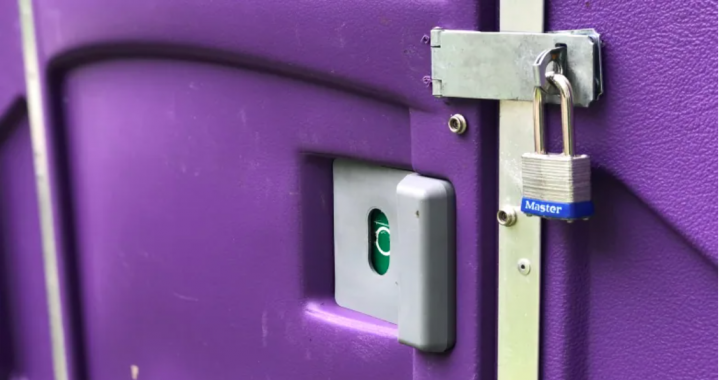Hugh Adami, Ottawa Citizen
January 25, 2014
OTTAWA — Juvenile minds might get a laugh, but Teresa Wilk says she needs to go public with her problem in the hope that it will bring changes to help her and fellow sufferers.
Wilk, 54, has had urinary incontinence for more than a decade. She has learned how to live with it, she says, even when she is outdoors and suddenly finds herself looking for a place where she can be discreet.
What upsets her is that OC Transpo, a public service, does not have toilets for riders at any of its transitway stations. Wilk says she did not realize how bad that shortcoming was until recently when her employer moved to the west-end. Instead of walking to work, she started busing to her job from the Hintonburg area. She also started using adult diapers for the morning and afternoon commutes.
The general lack of public restrooms in Canadian cities also grates her. When Wilk goes out for a walk, she says she relies on “toilet mapping” — incontinence-speak for knowing where to find the nearest coffee shop or gas station in case a restroom is required.
Wilk points to European cities as being much further ahead in providing public restrooms. Besides facilities where there is usually a small charge for the use of a toilet and hand basin, self-contained and self-cleaning public toilets, first pioneered by the French under the trademark name “Sanisettes,” are common along city streets.
Wilk says the need for public restroom facilities in Ottawa will not go away as the prevalence of incontinence, urinary or bowel, rises with age. Statistics from 2006 show that at least 1.5 million Canadians suffer from urinary incontinence, but that number is likely very conservative. Only 25 per cent of sufferers seek help from health professionals because many are too embarrassed. Most people over 65 suffer some level of incontinence.
“My city isn’t being as age-friendly as it could be,” says Wilk. She wishes she didn’t have to wear an adult diaper as she worries about it leaking on the bus. And when she gets to work, she has to wash herself as best she can. If transitway stations had toilets, she says she would get off at the nearest stop when she felt the need and then resume her trip on the next bus.
The Canadian Continence Foundation couldn’t agree more with Wilk. The lack of public restrooms is “a huge, huge issue across the country,” says executive director Jacqueline Cahill. She says her organization and the Crohn’s and Colitis Foundation of Canada are considering a pilot project in Alberta to educate the public about incontinence and encourage various establishments, including restaurants and bars, to allow non-patrons to use their restrooms. She says too often, establishments turn away incontinence sufferers.
Cahill says she “was shocked” when she moved from Britain to Montreal several years ago and discovered that its Metro stations did not have restrooms.
Those without station restrooms include transit systems in Montreal, Calgary, Washington D.C., Portland, Los Angeles and St. Louis. According to Internet websites, Edmonton has restrooms at eight of 15 LRT stations, Toronto, 10 of 69 subway stations, New York, 77 of 467, Chicago, 1 of 144, Boston, 173 of 255, and Atlanta, 38 of 38.
London’s Underground has restrooms in 124 of 270 stations, while Paris, with 370 stations, has only 37.
Though Ottawa’s transitway doesn’t have any, there will be restrooms at two of 13 stops in the first phase of the LRT project — Tunney’s Pasture and Blair Road. The restrooms are required as the Ontario Building Code considers Tunney’s and Blair “terminal” stations. If this is any consolation, Transpo notes there are washroom facilities near some of its transitway stations (also future LRT stops). These include Mackenzie King station (Rideau Centre), Campus (University of Ottawa) and St. Laurent (shopping centre).
The inability to properly supervise restrooms around high traffic areas is the main reason why none will be built in the 11 other LRT stations. Pat Scrimgeour, Transpo’s transit planning manager, says there was considerable discussion between staff and city councillors, but at the end of the day, security concerns put an end to the idea.
Is something bothering you? Please contact: [email protected]



